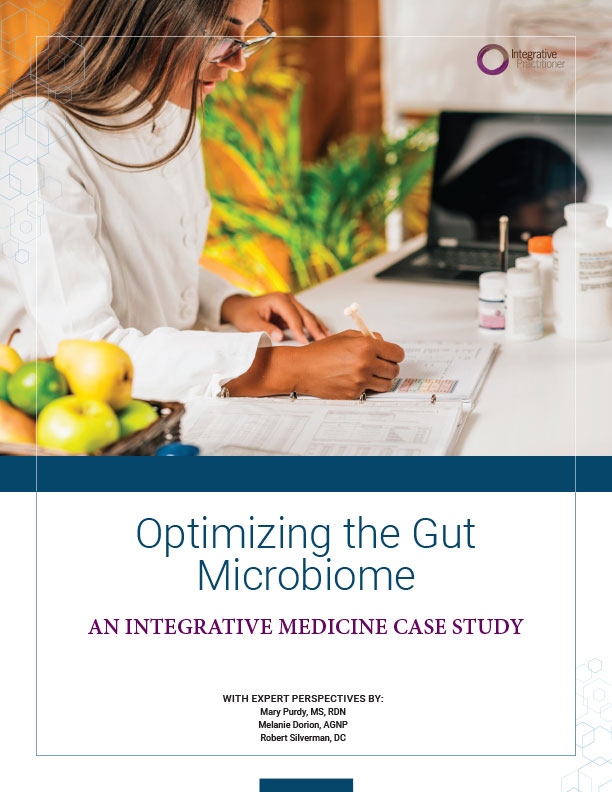Recent
July 23, 2024

Presented by: Isadora Guggenheim, ND
Cancer, diabetes, auto-immune, Lyme, and other chronic conditions have impaired epigenetic sources. This session will explore through literature review and clinical practice the underlying root causes of chronic diseases. The session will address appropriate identification, testing

This edition of the Integrative Practitioner Digital Summit focuses on aging and longevity.


LIMITED-TIME BUNDLE: Become an Integrative Practitioner member, and receive the Marketing Workbook for Integrative Healthcare Professionals for FREE (a $125 savings).
DETAILS --
Integrative Practitioner Membership
Access all Integrative Practitioner content -- unrestricted.
Memberships will automatically renew on an annual basis until
Marketing Workbook for Integrative Healthcare Professionals
Marketing can be a controversial subject in the integrative healthcare community. Inherently, practitioners may bristle at the very notion that practicing integrative medicine requires a marketing strategy, seeing
Access all Integrative Practitioner content -- unrestricted.
Memberships will automatically renew on an annual basis until cancelled. By becoming a member, you will be subscribed to the Integrative Practitioner Update, Integrative Practitioner's digital newsletter. You can unsubscribe at any time.

Nutrition is the backbone of integrative medicine. A patient’s diet can affect not only weight and body composition but, as a growing body of research shows, it can play a tremendous role in chronic disease prevention and treatment. However, most physicians receive very little nutrition instruction in the classroom or during residency.

Presented by: Valter Longo, PhD
Decades of genetic and nutrition studies by my laboratory and others have resulted in the identification and understanding of strategies to activate high protection, repair and regeneration systems able to prevent but also treat diseases. We now know that certain genetic mutations are effective in greatly reducing cancer and diabetes rates in mice and humans. Chronic dietary restriction is also able to prevent major diseases in monkeys and has strong effects on disease risk factors in humans, but it also has detrimental effects on lean body mass, and potentially on immunity and wound healing.

Gastrointestinal health issues can be a sensitive topic for many patients. Whether moderate symptoms or more serious conditions like small intestinal bacterial overgrowth (SIBO), working with patients to improve their symptoms requires a comprehensive but compassionate approach.
In this case report, we review a patient struggling with her gastrointestinal health and resulting significant unintentional weight loss. Featuring expert perspectives from Mary Purdy, MS, RDN, Melanie Dorion, AGNP, and Robert Silverman, DC, the authors walk the reader through gut microbiome-based protocols, addressing nutrition, supplementation, and overall lifestyle.

Presented by: James Gordon, MD
Traumatic and stressful events affect our emotional and physical health, social functioning, and overall wellbeing. This discussion is designed to give participants evidence-based practical tools for preventing and managing life’s inevitable stresses, building resilience, and self-awareness. The approach utilized is practical, accessible, and evidence-based, and can transform even the most devastating trauma into an opportunity for discovering personal meaning and purpose.

The incidence of virtually all neurodegenerative diseases has been increasing relentlessly the past half century. While numerous causes, such as obesity and diabetes, have been proposed as the causes, the substantial role of environmental toxicants has been seriously under-recognized.

The spectacular role of the human microbiome in preventing post-prandial or metabolic endotoxemia, the number one cause of mortality worldwide.